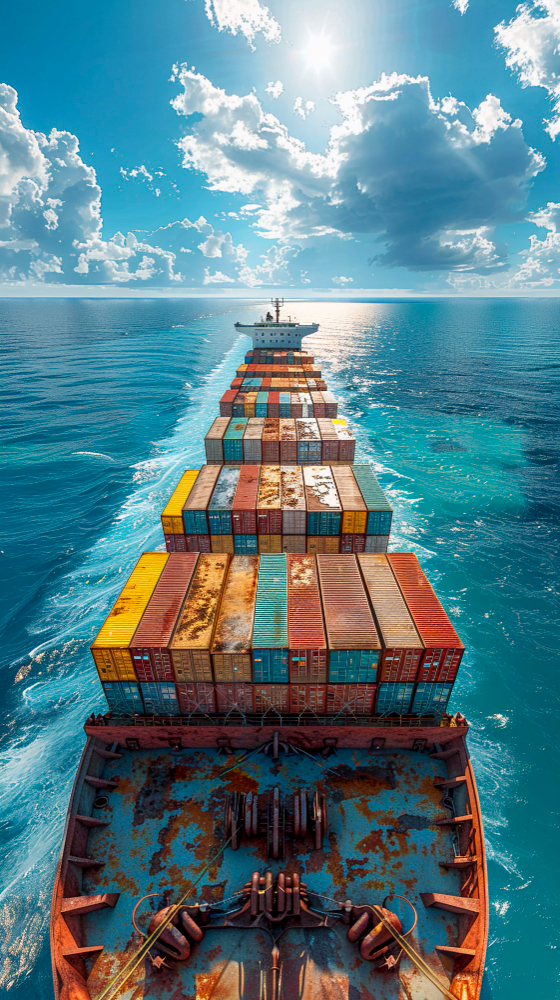
Dubai has long established itself as a central gateway for international trade. With its strategic location between Asia, Europe, and Africa, the city plays a crucial role in the movement of goods across continents. As the demand for efficient and sustainable shipping solutions increases, sea freight logistics in Dubai is evolving rapidly, setting new benchmarks for the global cargo transport industry.
Strategic Importance of Dubai in Global Shipping
Dubai’s prominence in sea freight logistics is largely attributed to its state-of-the-art infrastructure and world-class ports. Among these, Jebel Ali Port stands as the largest and busiest port in the Middle East, serving as a key transshipment hub. With its deep waters and advanced cargo handling capabilities, it supports large container vessels and bulk carriers alike.
The city’s central location makes it a preferred choice for international shipping companies looking to optimize their supply chain. Goods moving between Asia and Europe often stop in Dubai for re-export, making it a vital link in global trade routes. Sea freight in Dubai benefits from reduced transit times, competitive costs, and seamless integration with land and air transport systems.
Technological Advancements in Sea Freight
The future of sea freight logistics in Dubai is being shaped by advanced technologies. Automation, artificial intelligence, and blockchain are transforming traditional shipping processes. Port operations are becoming more efficient through the use of automated cranes, smart container tracking, and real-time data analytics.
Companies like Quick Star Shipping are embracing these innovations to enhance their service offerings. By integrating digital tools into their operations, they ensure improved visibility, faster clearance, and greater transparency for their clients. These advancements not only streamline logistics but also reduce operational costs and environmental impact.
Sustainability and Green Shipping Initiatives
Environmental sustainability is becoming a top priority for the maritime industry. Dubai has taken significant steps toward promoting green shipping practices. Investments in eco-friendly vessels, shore power systems, and cleaner fuels are at the forefront of these efforts.
Quick Star Shipping has committed to reducing its carbon footprint by adopting fuel-efficient vessels and exploring alternative energy sources. These initiatives are in line with Dubai’s vision for a sustainable future and its goal to become a global leader in eco-conscious logistics. As regulations tighten and environmental awareness grows, sea freight companies operating in Dubai are expected to align with green policies and contribute to a cleaner supply chain.
The Role of Free Zones and Trade Agreements
Dubai’s free zones, such as Jebel Ali Free Zone (JAFZA), offer businesses significant advantages, including tax exemptions, full foreign ownership, and streamlined customs processes. These zones attract multinational companies looking to establish regional distribution centers.
Quick Star Shipping operates within these zones to provide efficient sea freight solutions to a diverse clientele. Their location allows for quicker turnaround times, easier access to international markets, and flexible warehousing options. Additionally, the United Arab Emirates’ participation in multiple trade agreements facilitates smoother cargo transport and reduces trade barriers.
Challenges Facing the Industry
Despite the promising outlook, the sea freight logistics industry in Dubai faces several challenges. Global disruptions such as pandemics, geopolitical tensions, and supply chain bottlenecks can affect shipping timelines and operational efficiency. Moreover, the rising costs of fuel and compliance with international maritime regulations add pressure on logistics providers.
However, companies like Quick Star Shipping are well-equipped to handle these challenges through adaptive strategies, robust risk management, and customer-focused services. Their commitment to innovation and reliability helps mitigate disruptions and maintain a high standard of service in a competitive market.
Future Outlook and Investment Opportunities
Looking ahead, the sea freight logistics sector in Dubai is expected to grow steadily. With continued investment in infrastructure, including the expansion of Jebel Ali Port and the development of new maritime zones, the city is poised to enhance its global standing.
The integration of digital platforms and smart logistics solutions will be central to future operations. Quick Star Shipping is already investing in these technologies to stay ahead of the curve. Their focus on digital transformation positions them as a key player in shaping the future of Dubai’s sea freight industry.
Furthermore, Dubai’s commitment to becoming a logistics and trade innovation hub presents new opportunities for investors and entrepreneurs. The city’s proactive regulatory framework, combined with world-class facilities, makes it an ideal environment for launching or scaling logistics ventures.
Conclusion
Dubai’s sea freight logistics industry is entering a new era driven by innovation, sustainability, and global connectivity. With its strategic location, advanced infrastructure, and forward-looking policies, the city is well-positioned to lead the future of maritime trade.
Quick Star Shipping stands out as a prominent player in this evolving landscape. Through cutting-edge technologies, environmental responsibility, and a customer-centric approach, the company continues to set new standards in cargo transport and international shipping.
As Dubai embraces change and invests in the future, the sea freight sector will remain a pillar of its economic growth and global influence. With companies like Quick Star Shipping leading the way, the journey ahead looks promising for both the industry and the businesses it serves.
Comments